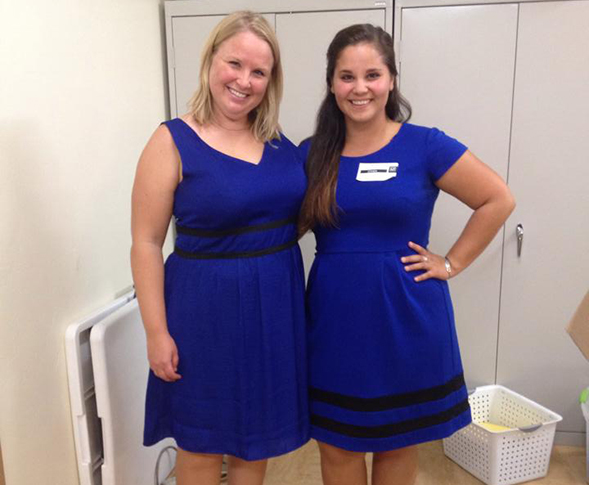Music Education Fellowships Benefit Students
Music education students are bringing music to San Diego community schools.

Originally started as part of the California Music Education Project in 2008, the Music Education Fellowship at SDSU continues to use the same model, but has been a separate entity for two years.
Selecting the fellows
Students are selected to be fellows based on academic standings and leadership experience, as well as recommendations from professors and staff members.
“We select people who are well on their way to graduating with a degree in music education, and who have a track record of success already,” explained Nan McDonald, coordinator of music education at the SDSU School of Music and Dance.
Gaining real-world experience
Fellows in the program partner with a mentor at local elementary, middle or high schools to get hands-on experience as music educators. The fellowship allows them to work for six to eight hours per week during the academic year. They teach in a variety of neighborhoods around San Diego, including southeast San Diego, Mira Mesa, Mid-City, and the College Area, where they teach choral, instrumental and elementary music.
“The fellowships really are such a great experience,” McDonald said. “Fellows gain a profound early understanding of the career they’re getting into. They see a lot of growth. They learn how to balance their professional and personal lives, they learn about discipline, and they learn from the kids how to teach.”
A win-win arrangement
Mark Nicholson, the instrumental music specialist for San Diego Unified School District said, “The fellowships benefit not only the fellows, but the mentor teachers as well. It makes them more reflective and methodical in their teaching practices when they have to show their thought process to the fellows.”
Adding another teacher to the classroom also improves the experience of the K-12 students. “It’s a huge benefit,” Nicholson said. “There is an opportunity for smaller group sizes, and even individual instruction for kids who may need it. It’s a win-win for all involved.”
The experience they gain during the program, it seems, will take them far. “Thirty-six students have come through our fellowship program since 2008,” McDonald said. “Of those, well over 90 percent are currently teaching in California schools. And they have between 200 and 400 students each.” The numbers she gives make it clear that this is a program with real impact beyond San Diego.
“What we’ve seen is that the students who received the fellowships are the first ones hired by educators in the school districts. This program is known by educators all over the state,” McDonald said.
Gathering the funds
In addition to the experience they gain, fellows also receive a $4,500 stipend. This year, there are four fellows and one student assistant who observe the fellows in each classroom. Donna Conaty, associate dean for the College of Professional Studies and Fine Arts, helps organize the funding for the Music Education Fellowships.
“The Community Council for Music in Schools provides funds for the student assistant,” she explained. “Philanthropy and private donations provide the funds for the fellows.” She estimates they have a budget of about $23,000 this year, but have had as much as $52,000 in the past.
“Our two biggest supporters are Jim Gunderson and Phyllis Epstein, who was one of the co-founders of the original California Music Project,” Conaty said. “Philanthropy supports these students being in the classroom, where they have the rare opportunity to get real-life experience in a safe and cultivated environment.”



